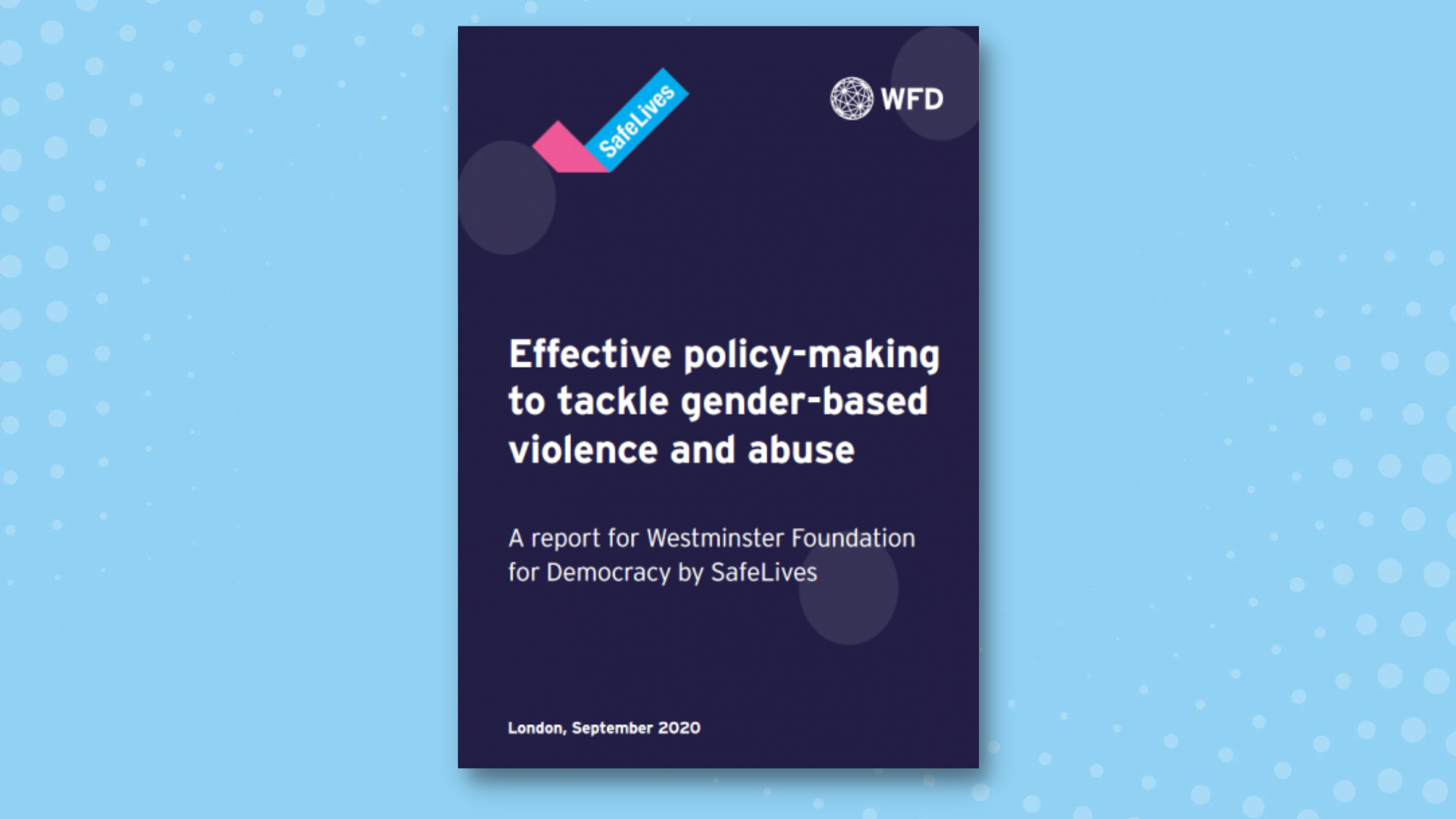Women’s rights are human rights. However, the legal protection of these rights is not guaranteed in all parts of the world. Even where anti-violence laws do exist, they can be poorly resourced and enforced, inhibiting the rights of women to live free from violence. That’s why WFD has worked with SafeLives to produce a report on effective policymaking to end gender-based violence.
Background
The COVID-19 pandemic has exacerbated gender-based violence through the effects of lockdowns, disruption to support services and poverty. The United Nations Population Fund (UNFPA) estimated in April 2020 that for every three months of lockdown, gender-based violence was expected to increase by 15 million cases globally. UNFPA estimates that disruption from the pandemic would result in an additional two million cases of FGM, a view also shared by campaigners.
There are also many other threats faced by women and girls around the globe: child marriage, coercive and controlling behaviour, prostitution, and modern slavery. Survivors of violence must be ensured that their well-being will be valued and protected, and that policing, justice and social protection systems will deal appropriately with offenders.
To help ensure that laws and policies actually make women’s lives safer, WFD and SafeLives have produced a paper to help inform effective policymaking to tackle gender-based violence.
Best practices for legislation and effective service delivery
As well as reviewing examples of legislation and good practice, the report also highlights elements of effective service delivery. For example, the ‘Do no harm’ principle and ‘One chance rule’ are essential to effective support services. The idea behind these is to approach every case with maximum precaution, as the first chance to protect a woman from violence might also be the last. To protect victims, survivors and their children, all interventions must be guided by these principles. The Welsh Government has already taken action in this direction and other public services are encouraged to do so.
Besides, the ‘Do no harm’ principle and ‘One chance rule’, six more elements of effective services are listed as suggested ways of protecting victims of gender-based violence:
- Services located in health and the community – Research suggests that locating services within a health setting creates better results than services within the criminal justice or children’s services settings.
- A multi-agency coordinated response – A multi-agency (government, voluntary and communities) coordinated approach is crucial for identifying victims, successful referral and service delivery.
- Qualified independent advocates located within specialist organisations – Independent Domestic Violence Advisers (IDVAs) are specialist case workers who work with victims at the highest risk of serious harm or murder ensuring that the victim’s voice is paramount in the creation of safety plans by state agencies.
- Programmes to improve public sector professionals’ response – This is key if victims are to feel confident disclosing violence against them.
- Women-only spaces – Women say that they want women-only spaces because they are made to feel inferior, irrelevant or invisible within male dominated spaces as well as at risk from violence against women and girls.
- Focus on stopping the perpetration, alongside services for victims – In the UK the DRIVE project is an intensive intervention that works with high-harm and serial perpetrators of domestic abuse to challenge behaviour and prevent abuse.
WFD and SafeLives’ report highlights ways of improving policies around the globe and making the world a safer place for women and girls.

